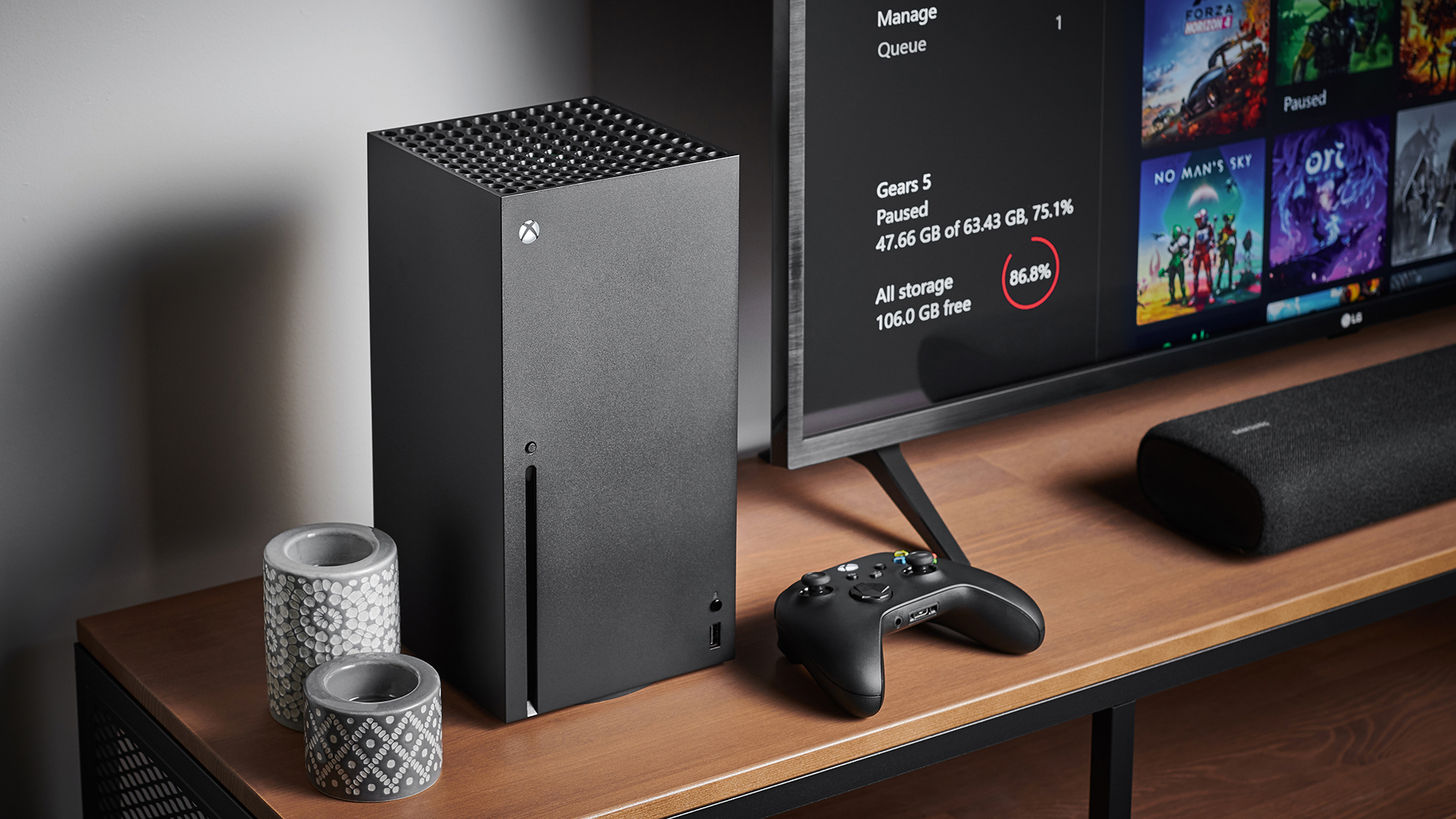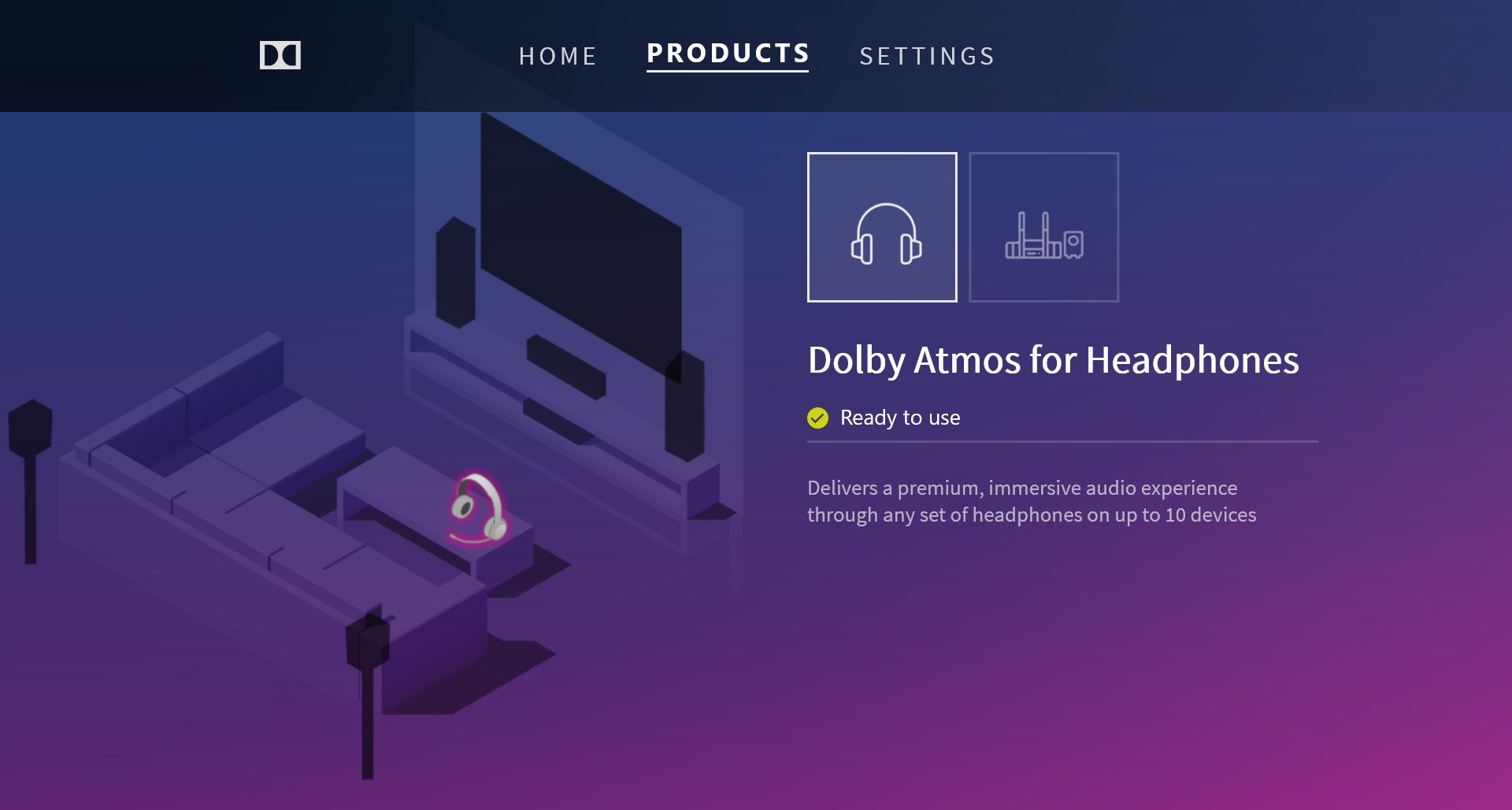Is the Xbox Series X a good 4K Blu-ray player?
Everything you need to know about the Xbox Series X's 4K Blu-ray player

The Xbox Series X often feels like it’s got it all. It's incredibly powerful, it somehow has a significantly smaller footprint despite than the PS5 being a small monolith and, importantly, gives you access to Xbox Game Pass, the exceptional monthly subscription service for games that’s probably saved us into four figures by now.
Importantly, Microsoft console also has a 4K Blu-ray player, but can it compete with the best 4K Blu-ray players if you’ve got a towering stack of high-definition movies to watch? After all, you'd rather not spend on two different devices that do the same thing if you don't have to, right?
The truth is, it might depend on how big that stack of Blu-rays is, and how you feel about your discs not looking quite as good as they would on devices built especially for Blu-ray. If you're splashed out on one of the very best TVs around and watch the ultimate in picture quality, the Xbox has a few
Let’s break down where the Xbox does the job well, and where it lacks, so you can decide whether you need a full-strength Blu-ray player or not.
Xbox Series X 4K Blu-ray feature support
First off, if you’ve been enjoying the additional brightness and contrast courtesy of the Xbox Series X supporting Dolby Vision for games and streaming video, that sadly doesn’t translate across to Blu-ray playback. Neither Dolby Vision or HDR10+ are supported for 4K Blu-rays so you’ll have to make do with just standard HDR10 high dynamic range.
Obviously if your TV doesn’t support either of these standards then you’re not missing much whether you’re using an Xbox Series X or standalone 4K Blu-ray player. But, if your TV supports Dolby Vision and HDR10+, something like the Panasonic DP-UB9000 would bring your content to life with HDR that takes better advantage of what your TV's capable of.

Soundwise, the Xbox Series X 4K Blu-ray player fares much better. It has support for both Dolby Atmos and DTS:X positional audio. The only thing you’ll need to remember is that they’re not there automatically out of the box.
Sign up for breaking news, reviews, opinion, top tech deals, and more.
Head to the Microsoft Store and you can download both apps. If you’re going to be using Dolby Atmos through a soundbar or home theater system, it’s free to use – but if you’re planning on listening through a gaming headset to 3D audio support, you’ll need to pay a one off fee of $15 through the Dolby Access app to use Dolby Atmos with headphones.
There’s no charge for DTS but you’ll just need to remember to go into the audio settings and check the box to ‘Allow passthrough.’ It’s an extra step, but nothing too tricky and once it’s done you can just leave it alone.
The soundscape overall is good quality but there have been numerous reports of occasional audio lag on certain system combinations. As is always the way when numerous brands, TVs, and cables are combined, this could just as easily be something you don’t encounter – but again, it's something you don't encounter with dedicated Blu-ray players.
Xbox Series X Blu-ray performance
When it comes to performance, there are a few common complaints with the Xbox Series X Blu-ray player to be aware of. Given the digital download revolution, a lot of us are now used to not playing games from a disc, and there’s a customary clunk that occurs when you insert a 4K Blu-ray.
Once it calms down though, you’re left with just the whirring of the unit which, if you’re far enough away from the console, shouldn’t be audible over your sound system. But those in smaller spaces should take note. There has also been speculation that the whirring is slightly quieter if you pop the console on its side instead of vertical next to your TV.
There are also entire Reddit threads dedicated to 4K titles that apparently don’t work with the console and while this does seem limited, it’s definitely something to take into consideration for your collection. The majority of 4K Blu-rays do work happily and still have that definition and sharpness that remind you you’re watching something natively in 4K albeit not as clear as a standalone player.
However, compared to the PS5 or dedicated 4K Blu-ray players, our testers have noted that the Xbox's overall image quality feels less precise and natural. Our colleages at What Hi-Fi? agree, noting that “4K images tend to look a little ‘rougher’ too, with slightly more dot crawl in areas of fine detail or subtle colour blends; a more jagged look to some curved or very thin lines; and even some faint but occasionally noticeable horizontal line structure over certain types of image elements - especially clouds and thin horizontal lines” in their PS5 vs Xbox Series X Blu-ray player comparison.
It’s definitely something you’ll want to consider if you’re planning to use this as your primary player. Plus, when it comes to playing standard Blu-rays, the 4K upscaling is a little fuzzier on the Xbox Series X than other players.
Xbox Series X 4K Blu-ray player conclusion
When it comes to using the Xbox Series X as a 4K Blu-ray player then, you’ll be fine if you’ve just got the a few UHD movies to watch. However if you’ve got shelves heaving with UHD Blu-ray boxes and a TV with Dolby Vision or HDR10+, a standalone player is going to be much better to get the home entertainment experience those 4K discs deserve.
Louise Blain is a writer and presenter specialising in tech, games, and horror entertainment. Thanks to the latter, she needs to avoid nightmares and regularly reviews the latest sleep tech for BBC Scotland, TechRadar and T3. Her specialist subjects include mattresses, weighted blankets, and sleep aids.
